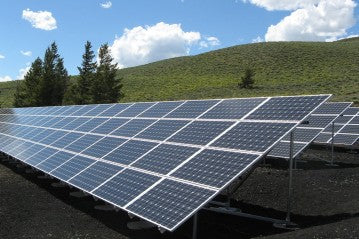
With the rising awareness of environmental issues and the increasing demand for sustainable energy solutions, solar panels have gained significant popularity among homeowners. Investing in solar energy can not only reduce your carbon footprint but also save you money on your electric bills. In this article, we'll explore the factors that influence your average monthly electric bill with solar panels, estimate potential savings, and shed light on the average electric bill in the US.
How Much is the Average Electric Bill in the US?
Before delving into the impact of solar panels on your electricity costs, it's essential to understand the average electric bill in the United States. According to the U.S. Energy Information Administration (EIA), the average residential electric bill in the US is approximately $120 to $150 per month. This amount varies based on location, energy usage, and other regional factors. However, it serves as a useful baseline for comparing costs after adopting solar energy.
Factors Affecting Your Average Monthly Electric Bill with Solar Panels
1. Solar Panel System Size and Efficiency:
The size and efficiency of your solar panel system play a significant role in determining your savings. A larger system with higher efficiency can produce more electricity, leading to greater savings on your electric bill. Factors such as the orientation and tilt of your solar panels, shading, and the climate in your area also impact system efficiency.
2. Energy Consumption Patterns:
Your energy consumption patterns are crucial in understanding how much solar energy you'll need to offset your electricity usage. Monitoring your household's energy consumption over the past year can provide insights into your peak energy demands and allow you to customize your solar panel system accordingly.
3. Local Energy Rates:
Electricity rates vary significantly across regions. States with higher energy costs may result in more substantial savings with solar panels. Check with your local utility provider to understand your current electricity rates and how they might change in the future.
4. Net Metering Policies:
Net metering is a critical aspect of solar energy savings. This policy allows you to sell excess electricity generated by your solar panels back to the grid. In essence, you receive credit for the surplus energy, which offsets your electric bill during periods when your solar panels may not produce enough energy.
How to Estimate Your Potential Savings with Solar Panels
1. Conduct a Solar Site Assessment:
Before installing solar panels, it's essential to conduct a solar site assessment. This assessment helps determine the viability of solar energy for your location. Factors like sunlight hours, shading, roof angle, and available space will be considered in this assessment.
2. Calculate Your Energy Needs:
Review your past electricity bills to determine your average monthly energy consumption. This will give you a clear idea of the capacity your solar panel system should have to offset most, if not all, of your energy needs.
3. Evaluate Solar Panel Quotes:
Reach out to reputable solar panel providers in your area and obtain quotes for the installation. Compare the costs and choose a provider that offers the best value for your needs.
4. Understand Available Incentives and Rebates:
Several federal and state-level incentives and rebates can significantly reduce the upfront costs of installing solar panels. Research and take advantage of these programs to maximize your savings.
Conclusion
Investing in solar panels is not only a sustainable choice but also a smart financial decision. Understanding your average monthly electric bill with solar panels requires careful consideration of factors such as solar panel system size, efficiency, energy consumption patterns, local energy rates, and net metering policies. By estimating your potential savings and conducting a solar site assessment, you can make an informed decision and pave the way for a greener and more cost-effective future.
Transitioning to solar energy not only benefits your wallet but also contributes to a cleaner environment. As you embark on this journey, be sure to engage with reputable solar energy providers who can guide you through the process and provide valuable insights. By taking advantage of available incentives and rebates, you can make the transition to solar energy more affordable and attainable for your household.
Remember, each home is unique, and the savings you achieve may differ from your neighbor's. Embrace the power of solar panels and witness firsthand the positive impact they can have on your average monthly electric bill and the world around us. Go solar and take a significant step towards a brighter, cleaner, and more sustainable future.

0 comments